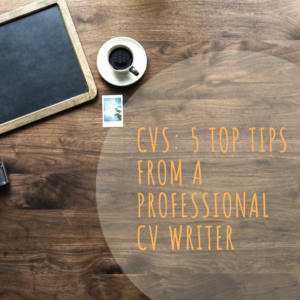 Competition for jobs is ramping up. I’ve written more than 10,000 CVs and here’s what I’ve learned to help you reach interview:
Competition for jobs is ramping up. I’ve written more than 10,000 CVs and here’s what I’ve learned to help you reach interview:
1) Get across your personality:
Why? Because if you’re up against someone with the same experience and qualifications, the person who manages to connect with the reader will be the one more likely to be snapped up for interview.
How: Write in the first person (‘I’ rather than she/he) to help you come across authentically. Include interests and external activities if they show positive characteristics relevant to the role you are applying for – such as determination, initiative, practical skills, reaching goals, self-growth or helping others.
Watch out for: Too much personal info. If it’s not positive, leave it out.
2) Pack it with keywords and skills:
Why? This will help you to get through Applicant Tracking Systems (ATS) which are used by most large organisations to screen candidates when you apply for jobs online. When your CV lands in front of a real human having key words and skills in there makes it super easy for employers to match you with the job.
How? Read the job detail, identify key skills, characteristics, qualifications and experience asked for and include them on your CV.
Watch out for: Overuse of Jargon. Including skills for the sake of if – they have to have context and evidence to make them believable.
3) Include Achievements:
Why? CVs with achievements are more likely to be selected. (increasing your chances by up to 70%). If you don’t include achievements, your CV will read as though you did your job, but you weren’t necessarily any good at it.
How? Think about how you can prove you were good at your job, where you’ve made a difference, ideas you’ve generated, things you’ve improved, people you’ve supported, problems you’ve solved and challenges you’ve faced. Dig deep and take your time on this, it’s worth it.
Watch out for: Exaggerating. Keep it real.
4) Stick to 1-3 pages:
Why? It’s a myth that a CV has to be 2 pages. It can be! But there are no real rules here. What matters is keeping it relevant, easy to read and in line with your experience. If you need 3 pages then go for it – every 3 page CV I’ve ever written has got through to interview.
How? Write your CV (most CVs I create are between 600>1500 words) then edit it.
Watch out for: Cramming too much into 1 page. If your font is less than 9, then you’ve gone too far.
5) Make it look beautiful:
Why? Presentation of your CV is your first impression. If it looks great, the employer is more likely to read your CV with a positive frame of mind.
How? Use a splash of colour. Keep plenty of white space in there to make it easy to read. Use a stylish CV template. Include bullet points. Save it in PDF as Word Docs don’t always translate well over different systems and your CV may get bent out of shape.
Watch out for: Over formatting. Use of too many symbols, varied fonts and tables which can make it hard for ATS systems to pick up key details and hard for the reader to pick out the relevant info.
